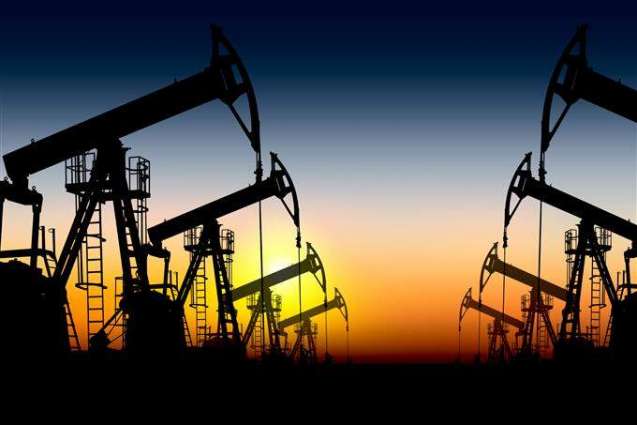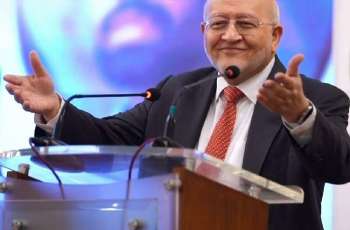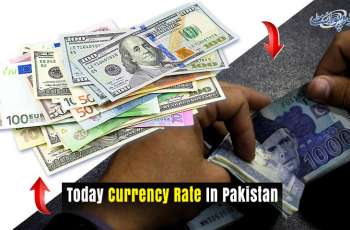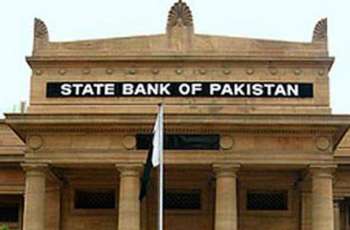Even though Venezuelan President Nicolas Maduro has shrewdly attempted to remedy the country's troubled energy sector by replacing the leadership of the oil ministry and the national oil company Petroleos de Venezuela (PDVSA), it might take much more to make the South American country great again in the international oil market, experts told Sputnik
MOSCOW (Pakistan Point News / Sputnik - 01st May, 2020) Even though Venezuelan President Nicolas Maduro has shrewdly attempted to remedy the country's troubled energy sector by replacing the leadership of the oil ministry and the national oil company Petroleos de Venezuela (PDVSA), it might take much more to make the South American country great again in the international oil market, experts told Sputnik.
Maduro announced his intention to majorly reform the oil and gas industry back in February, when he declared an emergency in the energy sector amid hyperinflation, plummeting oil prices, and the hit of US sanctions.
The situation, however, has since deteriorated further as oil futures hit negative values for the first time in history in mid-April and countries across the world scramble to stabilize the market amid the crippling pandemic..
The recent downturn in global oil prices due to the ongoing COVID-19 pandemic that has left passenger planes grounded and forced economic activity to grind to a halt has had a significant impact on the world economy, and Venezuela has not been left unscathed.
"The global oil market and crude oil producers around the world are suffering from the destructive impact of the coronavirus outbreak. Venezuela is no exception," Mamdouh G. Salameh, an international oil economist and visiting professor of energy economics at the London-based ESCP Europe business school, told Sputnik.
In 2017, Venezuela was producing more than 2 million barrels of crude per day (bpd). The country's current output is estimated to be 700,000-800,000 bpd, with major buyers likely scared off by the US sanctions.
"This dramatic fall in its oil production was already catastrophic for Venezuela due to its heavy dependence on oil revenues and prices. The situation is really very, very bad for the oil sector in Venezuela and for this country," Francis Perrin, a senior fellow at the Policy Center for the New South (PCNS, Rabat) and at the French Institute for International and Strategic Affairs (IRIS, Paris), told Sputnik.
The sharp downturn in both oil output and prices, coupled with the impact of the coronavirus pandemic, has put Venezuela at a double disadvantage, the expert said, adding that the heavy and ultra-heavy crude oil that the country produces is traditionally less valued in the global market.
"In fact, there is a 'triple penalty' for Venezuela: much less oil production than in the past; much lower oil prices due to the pandemic; and heavy crudes, whose prices are normally lower than higher-quality crudes produced by other countries," the expert said.
On Monday, Maduro reshuffled the energy sector leadership with two landmark appointments: Tareck El Aissami replaced Manuel Quevedo as minister of oil, and Asdrubal Chavez, cousin of late president Hugo Chavez, took the helm of the PDVSA.
"Changing the person/face in charge of the oil industry has been a shrewd move: psychologically astute and operationally critical," Michael Derham, an author and political analyst with a focus on Spanish and Latin American studies, told Sputnik.
Thanks to the old leadership, "21 years of constant undermining of Venezuela's sovereignty have created chaos in its oil industry," as Manuel Quevedo has completely failed his mission to increase production notwithstanding sanctions � the reason he was appointed to lead the oil ministry and the PDVSA in 2017 in the first place.
"That proved impossible for him as the oil industry needs constant maintenance, repair and renewal. Sanctions meant that spare parts could not be bought from foreign suppliers as they could not sell to Venezuela and banks could not facilitate the purchase either," Derham said.
According to the expert, El Aissami is just the right bet to replace Gen. Quevedo and end the era of military dominance in the Venezuelan energy management during which the oil production has fallen massively.
"Psychologically, a new head for the oil industry could give it a morale boost, if nothing else," Derham opined.
But there is much more in El Aissami's portfolio to make the new appointment more than a nice change of facade, the expert continued.
"His track record in office has been impressive and he has been constantly one of the better performers on the national and international stage. He is therefore highly respected within government," Derham said.
Moreover, the fact that the US has been attacking El Aissami in ways such as including him in a list of Venezuelan officials indicted by the US Justice Department on charges of "narco-terrorism" shows that Washington "fears him as an opponent," the analyst said.
"Attacks by the US have become increasingly juvenile, repetitive and inane. We see the same accusations against US 'enemies' all over the world. They are simply no longer believable and, I would suggest, even counter-productive," Derham said.
Another important factor, as pointed out by the expert, are the new minister's middle Eastern heritage and network, to potentially bring about a meaty partnership for Venezuela with another global oil power currently in cramped circumstances, Iran.
"Given El Aissami's Middle East connections, it is hoped he will enable Venezuela to draw out every bit of worth and value from its oil through this warm relationship with another huge, experienced and isolated oil producer, Iran," Derham said.
Overall, the expert has an optimistic outlook for the future of Venezuelan oil industry.
IT TAKES MORE THAN A NEW OIL MINISTER
His opinion has been countered by IRIS researcher Francis Perrin, who thinks that the change of minister is unlikely to remedy the troubled Venezuelan energy sector.
"The situation of Venezuela is very severe and it cannot be solved by replacing the oil minister," Perrin said.
This opinion was shared by Salameh, who referred to new White House sanctions against the South American company that will result in the US oil companies Chevron and Halliburton terminating operations in Venezuela.
"The appointment of Venezuela's Vice President Tareck El Aissami as oil minister comes amid a worsening gasoline shortage and American companies Chevron and Halliburton's imminent exit from Venezuela as part of President Trump's tightening of sanctions against Venezuela," the economist said.
According to Perrin, a combination of external factors, such as higher oil prices, and internal factors is needed for Venezuela to get back on its feet and rectify the current economic crisis.
The researcher stated that Caracas should strive to strengthen the PDVSA and attract more foreign capital, with these efforts coupled with substantial investment in the renovation of its oil infrastructure and building relations with potential buyers to recuperate damage inflicted by the US sanctions.
"At the end of the day, without any solutions to the political crisis within Venezuela and without a better relationship with Latin American and Western countries, including the United States, it will be very difficult for the country to become again a very important player on the international oil market despite its huge reserve potential," he said.
Rebuilding the relationship with Washington will prove difficult, Salameh asserted, due to US envy over Venezuela's proven oil reserves, the largest in the world.
"No matter how Venezuela's neighbor is good and neighborly, it must still cast some envious eyes on such unbelievably huge oil wealth," the economist said.
The political situation in Venezuela derailed last January when opposition leader Juan Guaido proclaimed himself interim president. Several countries, including the US, endorsed him as Venezuela's leader and urged Maduro, to step down. The US then imposed several rounds of sanctions against Venezuelan officials and entities, including the freezing of billions of Dollars in US-based assets belonging to PDVSA and its subsidiaries.
According to Salameh, the United States has failed in its attempts to overthrow Maduro and should withdraw its support for Guaido.
"Despite the most intrusive sanctions, the United States has failed to effect a regime change in Venezuela. It is better for President Trump to withdraw his puppet Juan Guaido back to America," the expert said.
Maduro, whose presidency is supported by Russia and China, among other states, has denounced the sanctions as an illegal attempt to seize the country's sovereign assets.




